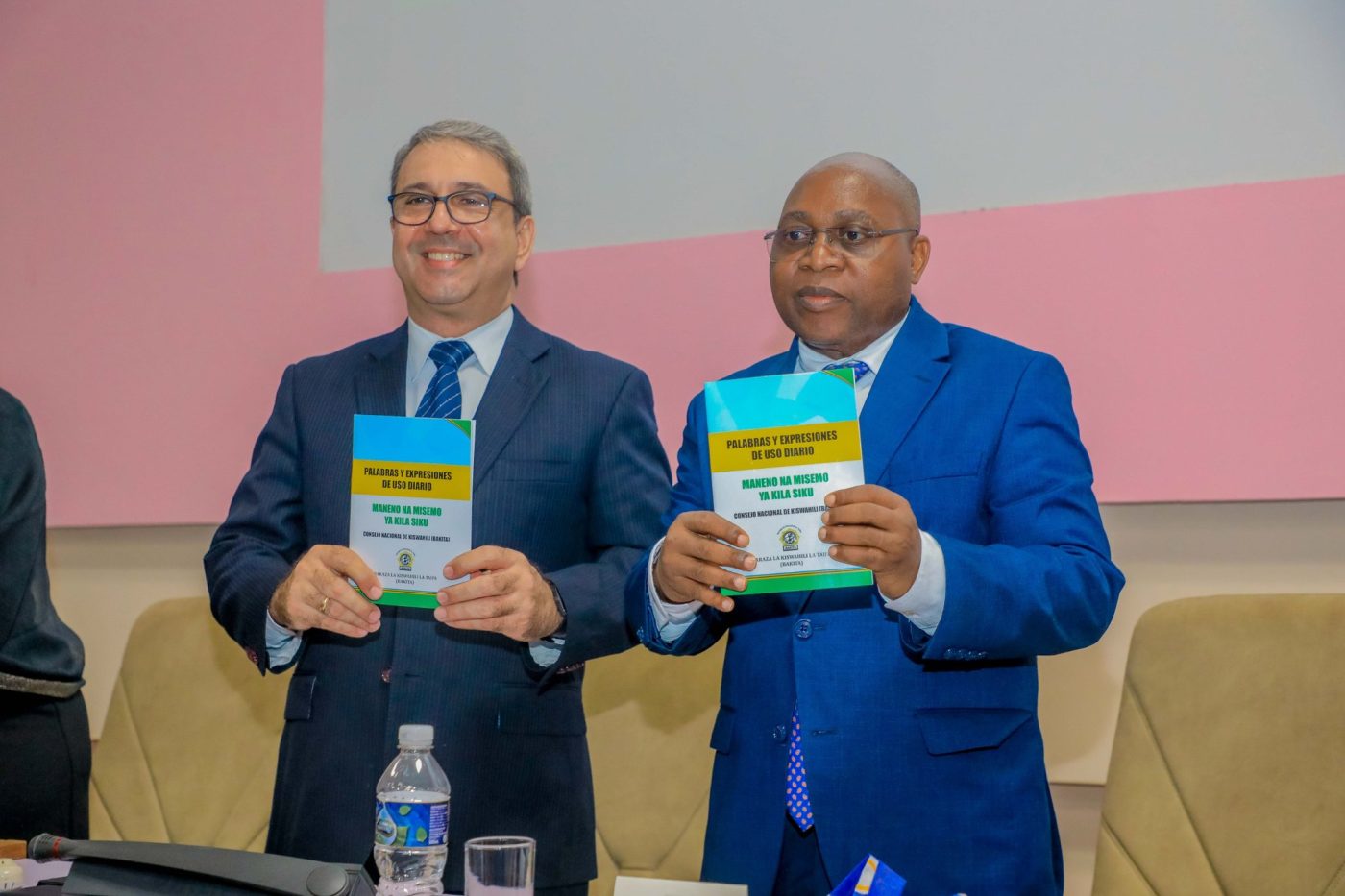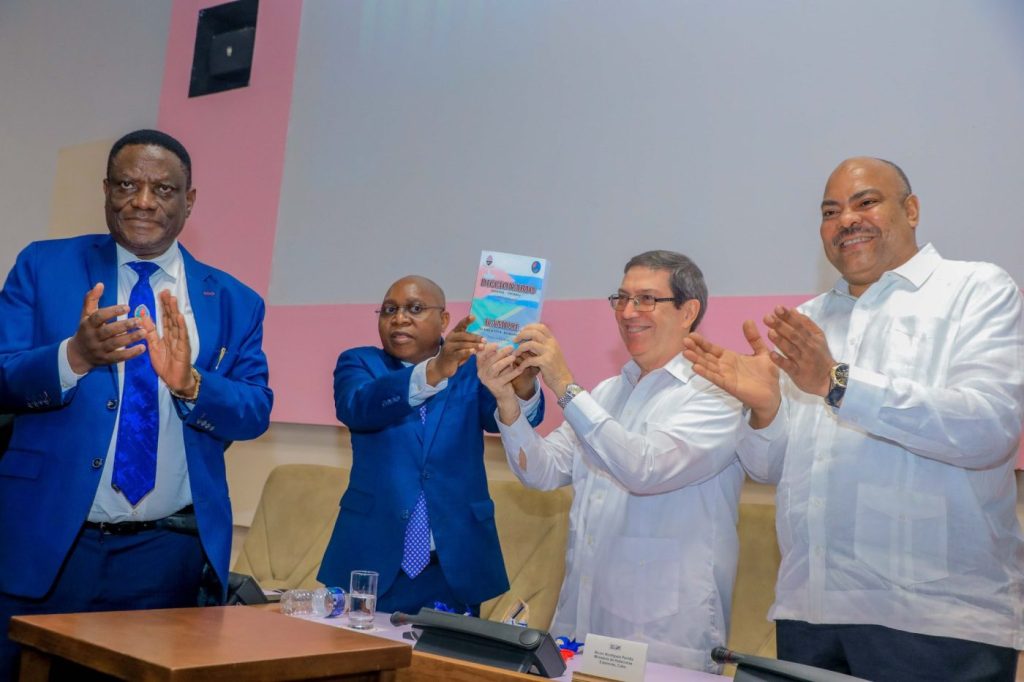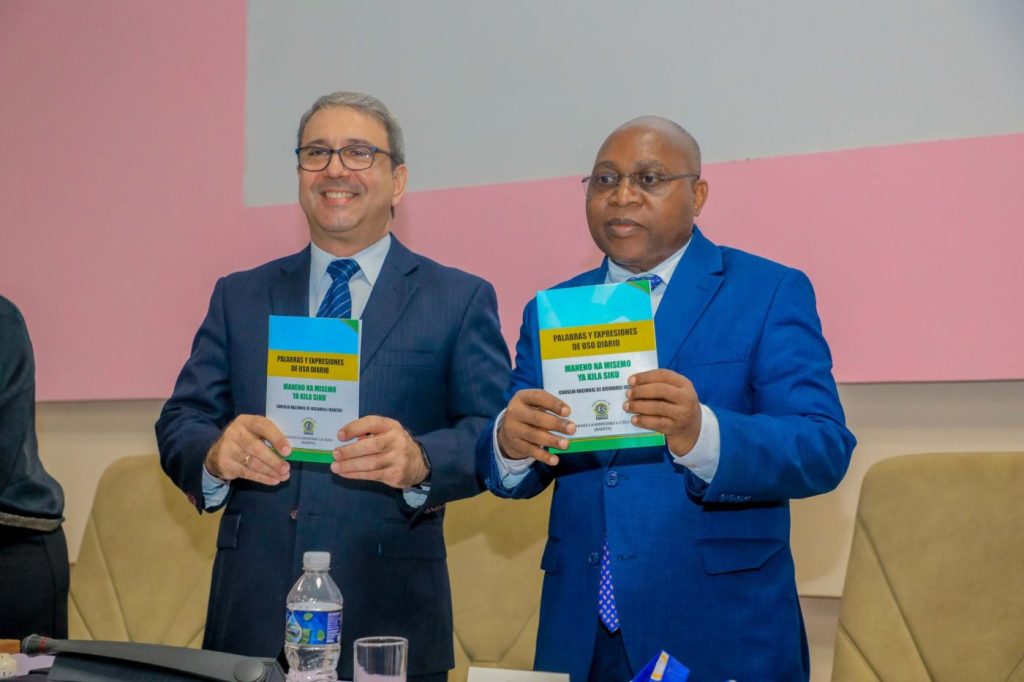
“Although Tanzania has over 120 languages, they chose Swahili to unify them,” says Dr. Leonard Muaka, a professor of Swahili and Linguistics at Howard University. He is also the President of the Global Association for the Promotion of Swahili, known as CHAUKIDU. Swahili is “among the 10 most widely spoken languages in the world, with more than 200 million speakers.”
By Edson Baraukwa | Africa Guardian
Tanzania has expressed its commitment to using the Kiswahili language as a catalyst for Africa’s economic development. Minister of Culture, Arts, and Sports, Dr. Damas Ndumbaro, representing President Samia Suluhu Hassan, made this statement at the inaugural International Kiswahili Conference in Havana, Cuba. The event brought together around 400 Kiswahili enthusiasts, experts, and delegates from across the globe, highlighting Kiswahili’s growing influence and potential for strengthening Africa’s economic ties.

Key highlights of the event included the launch of an Español-Swahili dictionary, a Swahili-Spanish proverbs collection developed by the Kiswahili Council of Tanzania (BAKITA), and a Kiswahili-Spanish learning book, crafted by Kiswahili specialists from the State University of Zanzibar. A statue of Tanzanian leader Mwalimu Julius Nyerere was also unveiled in Havana’s Heroes’ Park, marking a symbolic connection between the African and Caribbean people.
Dr. Ndumbaro reflected on Cuba’s historic support for African liberation struggles, noting that Kiswahili was the main language of communication for freedom fighters across Africa. As Africa now embarks on an era of economic liberation, Kiswahili is positioned to become a vital tool for enhancing integration in trade, tourism, and investment across the continent.
“To realize the full potential of economic opportunities between Africa and the Caribbean, adopting Kiswahili can strengthen our bilateral relationships,” Dr. Ndumbaro stated. He highlighted that with an increasing number of Kiswahili speakers in the Caribbean, trade and cooperation between the regions would see significant growth.

Kiswahili’s importance continues to rise on a global scale, as it is widely spoken in regional African communities, endorsed by the African Union (AU), and recognized by UNESCO. Dr. Ndumbaro encouraged Caribbean nations to embrace Kiswahili as a means of fostering cultural and economic integration with Africa.
Foreign Affairs Minister Mahmoud Thabit Kombo conveyed President Samia’s gratitude to Cuba for its support and participation, and he urged Tanzanian Kiswahili advocates to capitalize on the global opportunities for Kiswahili. “President Samia is creating avenues for Kiswahili’s global prominence, and it’s crucial that we seize these opportunities,” he said.
The conference underscored Tanzania’s commitment to Kiswahili diplomacy and its collaborative efforts with Cuba, especially following the recent devastation caused by Hurricane Rafael. The event reinforced Kiswahili’s role as a bridge for economic and cultural solidarity between Africa and the Caribbean.
___
